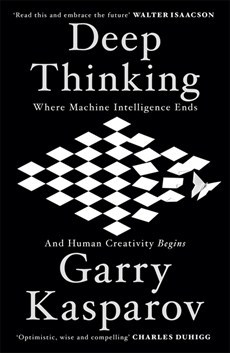More on this book
Community
Kindle Notes & Highlights
Read between
December 4, 2017 - January 19, 2018
Despite centuries of science fiction about automatons that look and move like people, and for all the physical labor today done by robots, it’s fair to say that we have advanced further in duplicating human thought than human movement.
Moravec’s paradox, in chess, as in so many things, what machines are good at is where humans are weak, and vice versa. In 1988, the roboticist Hans Moravec wrote, “It is comparatively easy to make computers exhibit adult level performance on intelligence tests or playing checkers, and difficult or impossible to give them the skills of a one-year-old when it comes to perception and mobility.”
It is far easier to tell millions of newly redundant workers to “retrain for the information age” or to “join the creative entrepreneurial economy” than to be one of them or to actually do it. And who can say how quickly all that new training will also become worthless? What professions today can be called “computer proof”? Today another set of tables has turned, or rather, desks. The machines have finally come for the white collared, the college graduates, the decision makers. And it’s about time.
Machines don’t need to do things the same way the natural world does in order to be useful, or to surpass nature. This is obvious from millennia of physical technology and it applies to software and artificially intelligent machines as well. Airplanes don’t flap their wings and helicopters don’t need wings at all. The wheel doesn’t exist in nature, but it has served us very well. So why should computer brains work like human brains in order to achieve results? As is so often the case in the crossroads of human and machine thinking, chess proved to be an ideal laboratory for investigating this
...more
The human mind isn’t a computer; it cannot progress in an orderly fashion down a list of candidate moves and rank them by a score down to the hundredth of a pawn the way a chess machine does. Even the most disciplined human mind wanders in the heat of competition. This is both a weakness and a strength of human cognition. Sometimes these undisciplined wanderings only weaken your analysis. Other times they lead to inspiration, to beautiful or paradoxical moves that were not on your initial list of candidates.


